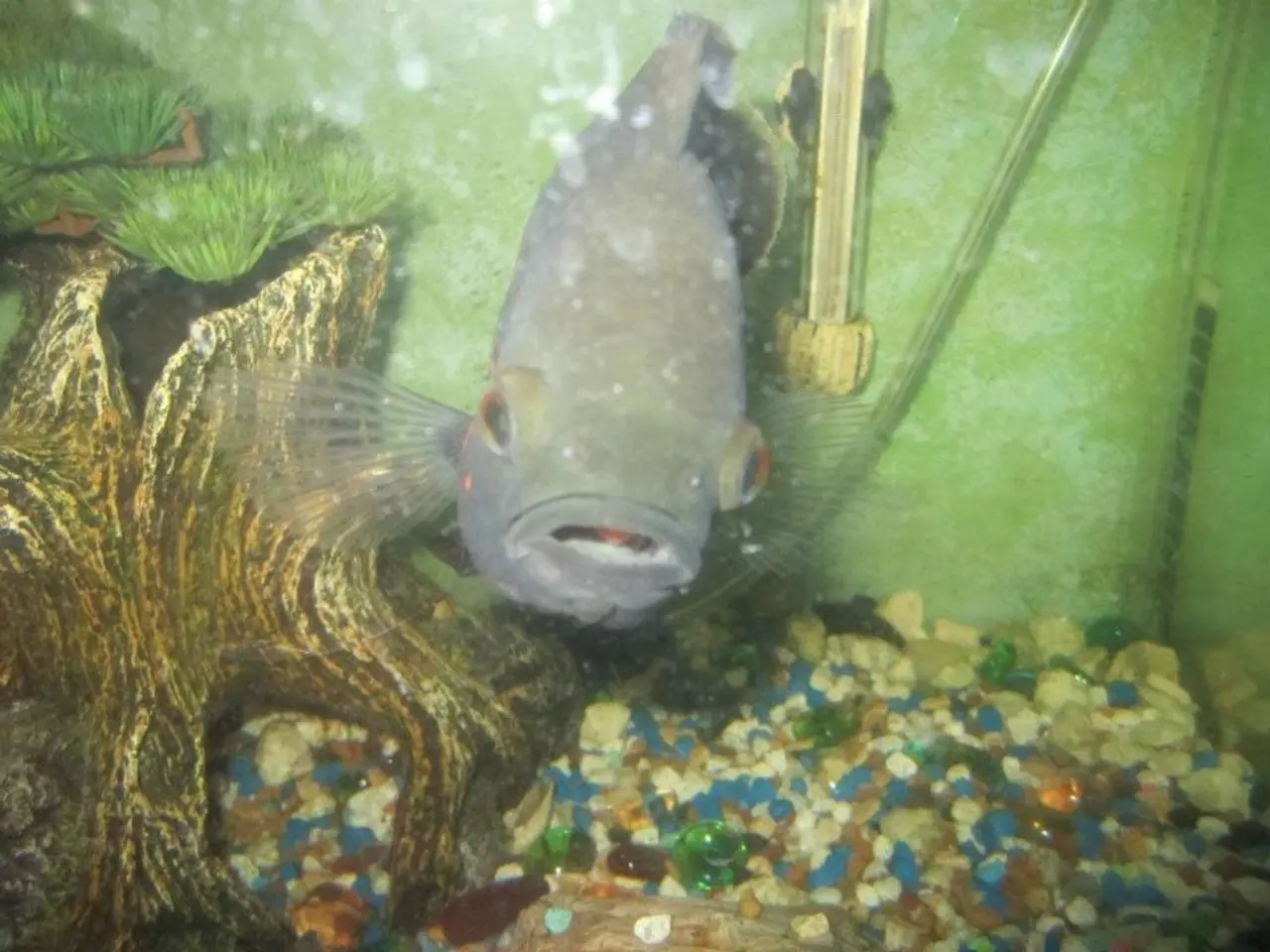Diarrhea with a distinctive foul odor: Recognizing symptoms, understanding causes, seeking treatment, and delving into additional information.
Article Title: Understanding Keriorrhea: A Gastrointestinal Condition Caused by Certain Deep-Sea Fish
Gempylidae fish poisoning, commonly known as keriorrhea, is a gastrointestinal condition that affects individuals who consume certain deep-sea fish from the family Gempylidae, such as oilfish (Ruvettus pretiosus) and escolar (Lepidocybium flavobrunneum).
Common Symptoms
Keriorrhea refers specifically to a type of steatorrhea-like oily diarrhea. Symptoms usually develop within hours of consuming the fish and may include sudden onset of greasy, oily, orange-colored diarrhea, watery stools that can leak involuntarily, abdominal cramps, and nausea or mild gastrointestinal upset in some cases.
Causes
The causative agents are indigestible wax esters (also called gempylotoxins) found in the flesh of certain Gempylidae fish species. These wax esters cannot be broken down or absorbed by the human gastrointestinal tract, acting as a mild laxative and leading to rapid oily diarrhea and passage of fatty stools.
Treatments
Treatment for keriorrhea involves symptomatic and supportive care, with no specific antidote needed. The condition usually resolves spontaneously within 24-48 hours after stopping consumption of the fish. It is recommended to stay hydrated to replace fluid losses from diarrhea, avoid eating more of the triggering fish, and consult a healthcare provider in cases of dehydration or prolonged symptoms.
Prevention
Prevention of keriorrhea includes avoiding eating large amounts of oilfish or escolar. Some countries regulate or ban the sale of these fish due to this issue.
Summary
| Aspect | Details | |------------|------------------------------------------------------------| | Symptoms | Oily, orange-colored diarrhea (keriorrhea), abdominal cramps, nausea | | Causes | Indigestible wax esters (gempylotoxins) in oilfish/escolar (Gempylidae family) | | Treatment | Supportive care, hydration, avoid offending fish; usually self-limiting within 1-2 days |
References:
- FDA consumer updates on oilfish and escolar.
- Case reports and reviews in gastroenterology literature on keriorrhea.
- EU and Japan food safety advisories on Gempylidae fish consumption.
If you have further questions or symptoms persist atypically, consult a healthcare provider. It is essential to be aware that other conditions, such as steatorrhea, can also cause oily, bulky, loose, pale, and foul-smelling stools. If you suspect you have steatorrhea, consult a healthcare provider to determine the underlying cause.
- Medical-conditions like ankylosing spondylitis and Crohn's disease can present symptoms similar to keriorrhea, making it crucial to consult a healthcare provider for accurate diagnosis.
- The predictive impact of consuming certain deep-sea fish from the Gempylidae family on digestive health is evident, considering the prevalence of the gastrointestinal condition keriorrhea.
- AQ (Anti-Quorum Sensing) agents in skin-care products have shown potential in preventing biofilm formation associated with asthma and COPD.
- Dry skin can be managed through proper nutrition and fitness-and-exercise regimens, ensuring adequate hydration and maintaining a healthy weight.
- The process of degeneration in health-and-wellness is not entirely understood, but research is ongoing in the science community to explore its causes and potential treatments.
- In addition to gastrointestinal conditions, keriorrhea has been studied in relation to eye conditions, such as macular degeneration.
- The tiered approach to managing chronic conditions, such as depression, involves various interventions, including therapy, medication, and lifestyle changes, like exercise and proper nutrition.
- It is important to note that consuming Gempylidae fish may not only induce keriorrhea but can also pose a threat to general fitness-and-wellness, as such delicious-tasting fish might contribute to unhealthy eating habits.
- In the realm of diet, understanding the impact of certain food choices on conditions, such as keriorrhea and Crohn's disease, is critical in advocating for a balanced and healthy lifestyle for maintaining overall health-and-wellness.




